
-
 French take surprise lead over Americans in Olympic ice dancing
French take surprise lead over Americans in Olympic ice dancing
-
YouTube star MrBeast buys youth-focused banking app

-
 French take surprise led over Americans in Olympic ice dancing
French take surprise led over Americans in Olympic ice dancing
-
Lindsey Vonn says has 'complex tibia fracture' from Olympics crash
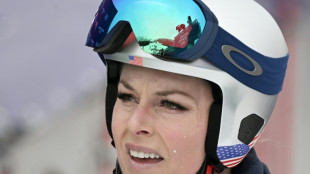
-
 US news anchor says 'hour of desperation' in search for missing mother
US news anchor says 'hour of desperation' in search for missing mother
-
Malen double lifts Roma level with Juventus

-
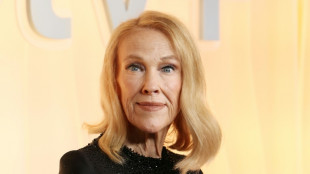 'Schitt's Creek' star Catherine O'Hara died of blood clot in lung: death certificate
'Schitt's Creek' star Catherine O'Hara died of blood clot in lung: death certificate
-
'Best day of my life': Raimund soars to German Olympic ski jump gold

-
 US Justice Dept opens unredacted Epstein files to lawmakers
US Justice Dept opens unredacted Epstein files to lawmakers
-
Epstein taints European governments and royalty, US corporate elite
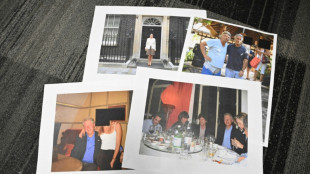
-
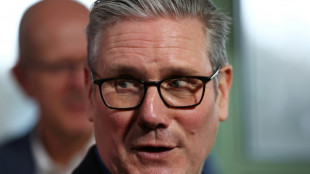 UK PM Starmer refuses to quit as pressure builds over Epstein
UK PM Starmer refuses to quit as pressure builds over Epstein
-
Three missing employees of Canadian miner found dead in Mexico

-
 Meta, Google face jury in landmark US addiction trial
Meta, Google face jury in landmark US addiction trial
-
Winter Olympics organisers investigate reports of damaged medals

-
 Venezuela opposition figure freed, then rearrested after calling for elections
Venezuela opposition figure freed, then rearrested after calling for elections
-
Japan's Murase clinches Olympic big air gold as Gasser is toppled

-
 US athletes using Winter Olympics to express Trump criticism
US athletes using Winter Olympics to express Trump criticism
-
Japan's Murase clinches Olympic big air gold

-
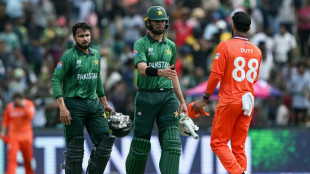 Pakistan to play India at T20 World Cup after boycott called off
Pakistan to play India at T20 World Cup after boycott called off
-
Emergency measures hobble Cuba as fuel supplies dwindle under US pressure
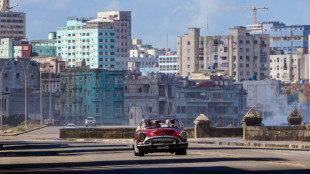
-
 UK king voices 'concern' as police probe ex-prince Andrew over Epstein
UK king voices 'concern' as police probe ex-prince Andrew over Epstein
-
Spanish NGO says govt flouting own Franco memory law
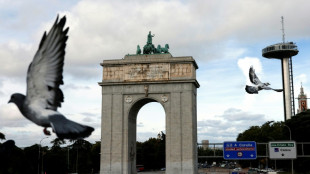
-
 What next for Vonn after painful end to Olympic dream?
What next for Vonn after painful end to Olympic dream?
-
Main trial begins in landmark US addiction case against Meta, YouTube

-
 South Africa open T20 World Cup campaign with Canada thrashing
South Africa open T20 World Cup campaign with Canada thrashing
-
Epstein accomplice Maxwell seeks Trump clemency before testimony

-
 Discord adopts facial recognition in child safety crackdown
Discord adopts facial recognition in child safety crackdown
-
Some striking NY nurses reach deal with employers

-
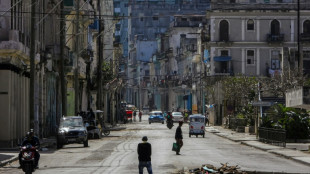 Emergency measures kick in as Cuban fuel supplies dwindle under US pressure
Emergency measures kick in as Cuban fuel supplies dwindle under US pressure
-
EU chief backs Made-in-Europe push for 'strategic' sectors
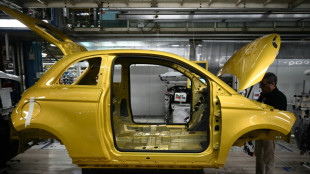
-
 Brain training reduces dementia risk, study says
Brain training reduces dementia risk, study says
-
Machado ally 'kidnapped' after calling for Venezuela elections

-
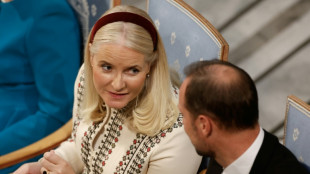 Epstein affair triggers crisis of trust in Norway
Epstein affair triggers crisis of trust in Norway
-
AI chatbots give bad health advice, research finds

-
 Iran steps up arrests while remaining positive on US talks
Iran steps up arrests while remaining positive on US talks
-
Frank issues rallying cry for 'desperate' Tottenham

-
 South Africa pile up 213-4 against Canada in T20 World Cup
South Africa pile up 213-4 against Canada in T20 World Cup
-
Brazil seeks to restore block of Rumble video app

-
 Gu's hopes of Olympic triple gold dashed, Vonn still in hospital
Gu's hopes of Olympic triple gold dashed, Vonn still in hospital
-
Pressure mounts on UK's Starmer as Scottish Labour leader urges him to quit
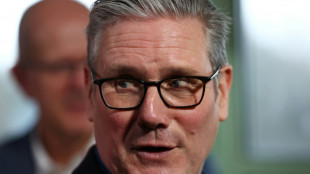
-
 Macron backs ripping up vines as French wine sales dive
Macron backs ripping up vines as French wine sales dive
-
Olympic freeski star Eileen Gu 'carrying weight of two countries'

-
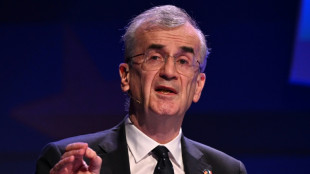 Bank of France governor Francois Villeroy de Galhau to step down in June
Bank of France governor Francois Villeroy de Galhau to step down in June
-
Tokyo stocks strike record high after Japanese premier wins vote

-
 'I need to improve', says Haaland after barren spell
'I need to improve', says Haaland after barren spell
-
Italian suspect questioned over Sarajevo 'weekend snipers' killings: reports

-
 Von Allmen at the double as Nef seals Olympic team combined gold
Von Allmen at the double as Nef seals Olympic team combined gold
-
Newlyweds, but rivals, as Olympic duo pursue skeleton dreams
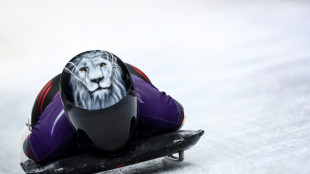
-
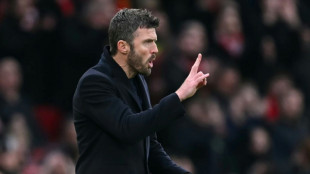 Carrick sees 'a lot more to do' to earn Man Utd job
Carrick sees 'a lot more to do' to earn Man Utd job
-
Olympic star Chloe Kim calls for 'compassion' after Trump attack on US teammate


From edge of extinction to Australia's croc 'paradise'
If you want a snappy death, one expert's advice is to leap into a river near the Australian city of Darwin -- within minutes, you'll be in the jaws of one of the hundreds of crocodiles that stalk its murky waters.
That's the promise of Grahame Webb, whose conservation efforts are credited with helping wrestle Australia's saltwater predators back from the verge of extinction.
"You can't sugarcoat crocs; these are seriously dangerous," Webb told AFP in his leafy garden in the country's tropical Top End.
Blunt messaging about the dangers around the waterways of Australia's north has been vital to rebuilding a population of the scaly reptiles once decimated by uncontrolled hunting, he said.
Before government protection in the 1970s, an estimated 98 per cent of the wild saltwater crocodile population had disappeared in the Northern Territory, driven by leather demand and culling.
Now, according to government figures, over 100,000 "salties", which can grow over six metres long and weigh more than 1,000 kilograms (2,200 pounds), hunt along the coasts, rivers and wetlands of the continent's far north.
- 'Eating people' -
"It's been a raging success story," Webb said.
But protecting the animals was only a first step.
"To conserve predators, you've got to rebuild their population; if you're successful at doing that, they then start eating people again, and everyone wants to get rid of them."
Charlie Manolis, a crocodile expert from the International Union for Conservation of Nature, said that by the 1980s, it was clear the community needed to see real value in the creatures to tolerate them as neighbours.
A public safety campaign, known locally as Crocwise, and regular relocations of the toothy predators from densely populated areas have helped them to coexist more peacefully with their sometimes-prey.
Wild egg harvesting is part of a "ranching" program in the Northern Territory that links the leather industry and livelihoods directly to the animals, according to colleagues Webb and Manolis.
Under the scheme, landholders -- many of them Indigenous Australians -- can receive payments for wild eggs collected from their properties, which are then supplied to ranches.
The lucrative leather trade relies on farms primarily stocked with eggs and animals plucked from the wild, with 70,000 eggs and 1,400 crocodiles allowed to be taken each year.
"There are quite a lot of people who are employed through crocodiles," Webb said, highlighting both tourism and farming industries.
- 'Cattle eater' -
The crocodile farming industry has been estimated to be worth over Aus$100 million (US$66 million) a year to the Territory, which is the largest producer of skins in Australia. The resulting leather is highly prized by luxury brands such as Hermes and Louis Vuitton.
Manolis said that although some people are critical of the management strategy for "using" animals and removing them from the wild, the connection to an industry has helped save the species from mass culls.
"It's not about farming, per se. Farming is what we used to make sure the wild population is conserved," he said.
"I was in mining, then I was a mother, and now I'm a croc keeper," Jess Grills, 32, told AFP with a smile as she manoeuvred a boat through an artificial river at Crocodylus Park near Darwin.
The park, founded by Webb, is a tourist attraction and "paradise" for "problem crocs" -- animals removed from the wild for posing a danger to locals or developing a soft spot for chomping on livestock.
"You can't train a crocodile, but you can put them in a place where they are not going to be a problem," she said as she routinely hoisted a hock of meat tethered to a long pole over the side of the boat.
She slapped the water with the bait and dangled it above.
The dark green muzzle of a once notorious "cattle-eater" called Prince slowly surfaced, followed by the glaring reptilian eyes.
The creature launched its hulking body upwards, its jaws at full stretch, before clamping its teeth deep into the flesh and splashing back into the water.
The message is clear for onlookers: be wary around where these giants hunt and live.
- 'A million years' of fear -
"You've always got to speculate that there is a crocodile in the water, no matter what," Grills said.
As populations boom and larger crocs become common, attacks, though rare, are likely to increase, Manolis said
Dealing with a fear that goes back "a million years" while keeping support for conservation will be "the biggest challenge", Manolis said.
"Let's face it, WWF (World Wildlife Fund) doesn't have a picture of a crocodile on it. It has a panda."
For Grills, the chance to admire the predators up close helps get support to save the animal.
"If you respect them and their territory, I don't think they would be as terrifying."
Z.Ramadan--SF-PST
